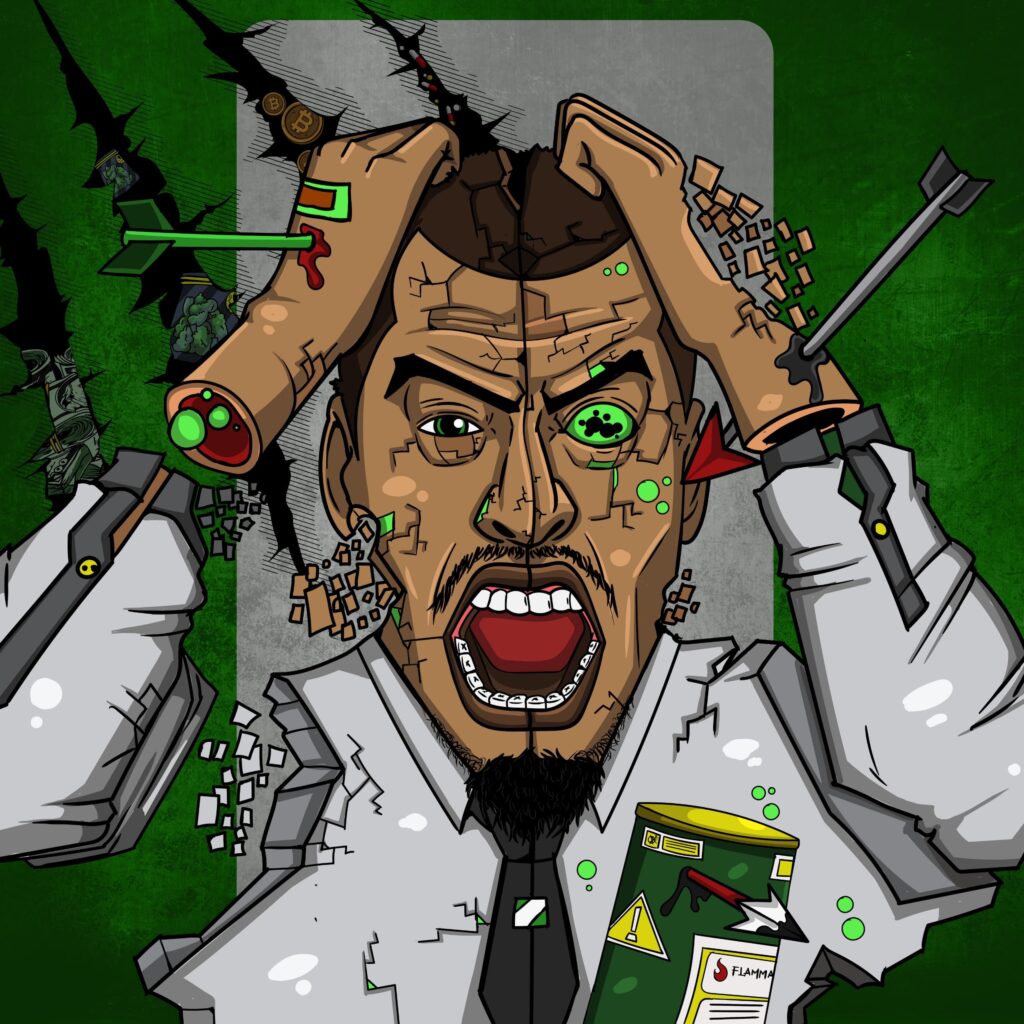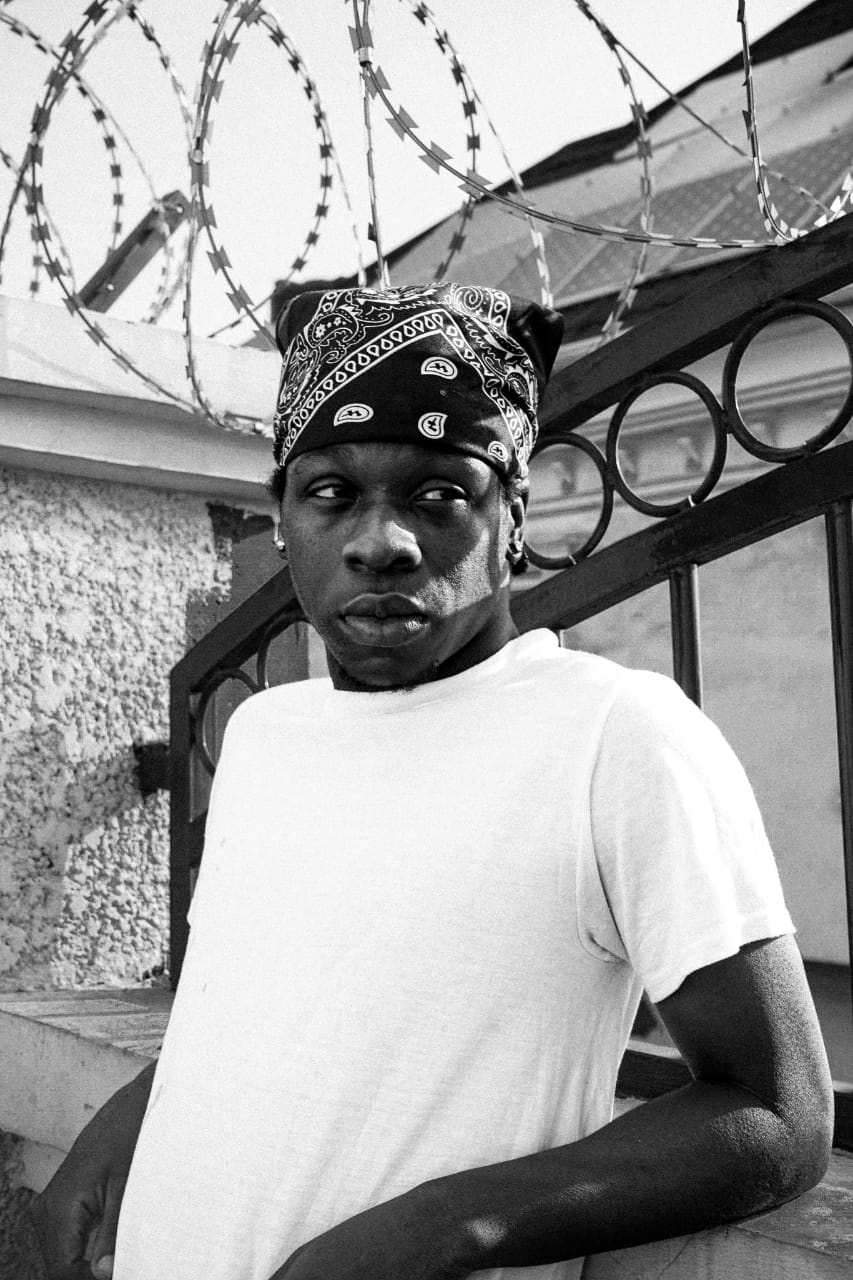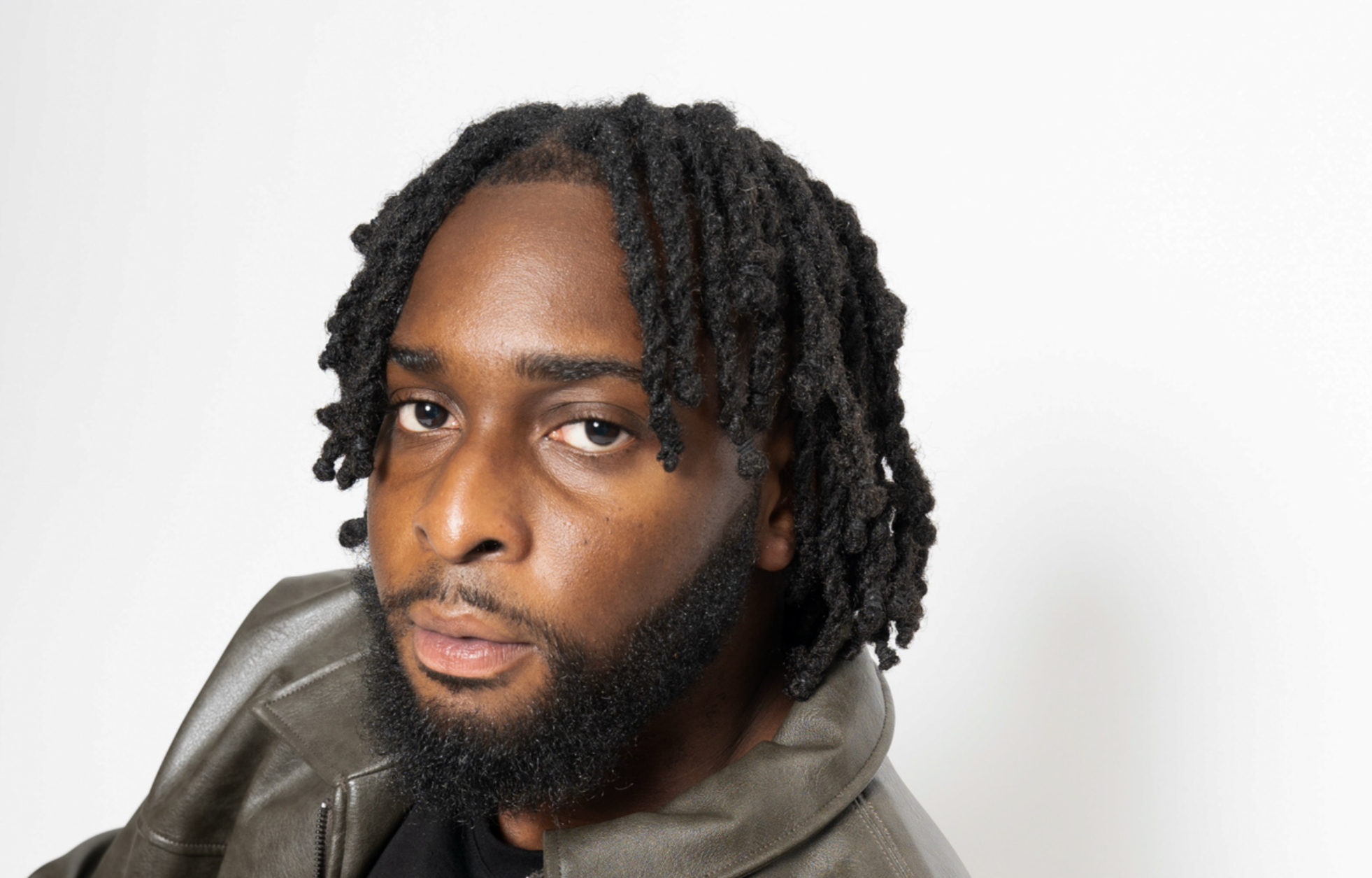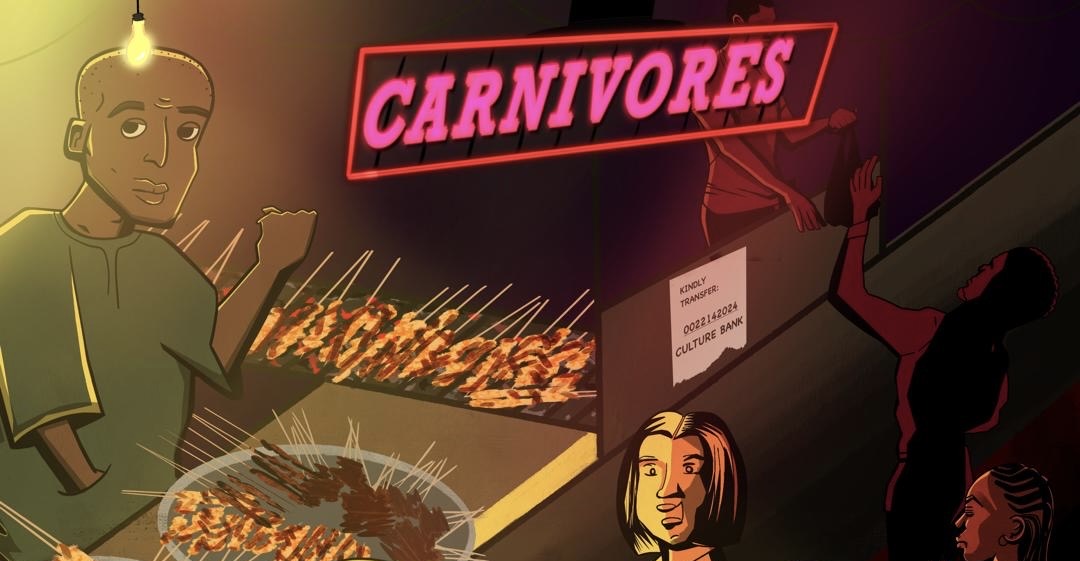by Dammy Shittu
Art, in its myriad forms, can evoke emotions, express thoughts, and convey untold feelings. The powerful depiction of storytelling through art has seen various artists across Nigeria, showcase their works. It’s one of the purposes in which the 49th Street Art Challenge was held, involving various forms of artists to showcase their works. With the theme, “Current State Of Nigeria”, the maiden edition of the challenge was won by Ochuko Mukorho. Ochuko is a visual artist from Warri who is involved in various forms of art including digital art, photography, videography and others.
In this interview, we discuss Ochuko Mukorho, a visual artist, on his prize-winning ‘Breaking Bad’, as well as his struggles as an artist and how he navigates them.
Congratulations on winning the maiden edition of the 49th Street Art Challenge! Can you share your initial reaction when you found out your piece was selected as the winner?
OC: Thank you so much. Okay, so first of all, I’ve never really won much in my life, academic awards or sports, but every time I win, it’s something related to art. So I feel blessed to have won an art competition. Especially something that wasn’t limited to a specific area.

Your art “Breaking Bad” stood out for its powerful depiction of the current state of Nigeria. What inspired the concept, and what message were you hoping to convey through your art?
OC: When I saw the theme “Current state of Nigeria”, what came to my mind was frustration. And I started watching the show, Breaking Bad before the competition. That was majorly what inspired the name of the art. In the show, he was surrounded by a lot of unfortunate circumstances around him. So before he died, he had to turn to a life of crime.
And literally, that’s what is happening in Nigeria. The economy is getting worse and it looks like getting a job is just not it. So people resort to other ways, japa or internet money, fraud, and selling drugs. It’s just everybody’s just trying to get by, but all in all, it’s always still frustrating.
How long did it take for the creation of “Breaking Bad” and were there specific challenges you encountered during the creation? How did you overcome them?
OC: Okay, the first problem I had was expressing frustration. I didn’t want to go so direct with it. But you can literally see a man trying to tear his head apart. And then, trying to represent a common Nigerian, I wanted to throw in a little green on the skin to show the zombie effect, because he’s actually a working-class citizen. So he’s trying to show that everything is not working out for him. You can see the crude oil on his chest, which was meant to be the heart of Nigeria. But there’s an arrow through it. The arrow shows that it’s definitely not working again. And that’s the crude oil spilling over. Then there are some other arrows thrown at him as well. Those arrows are literally any other thing that just affects Nigeria. I didn’t want too much in the details. I wanted to leave the audience to at least interpret some of it themselves.
But picking all these elements was what actually took my time. The work process took me about eight hours. But I finished it in like two weeks because I kept coming back to it just so it could be really good. And I also kept asking people for advice, and they told me, less is more. That was when I decided to take the green off the skin and just make the skin normal.
Walk us through your artistic process. How do you usually begin a new piece, and how did this process evolve for “Breaking Bad”?
OC: Before I used to give a lot of excuses, so when they give me a project to work on, and if I’m not in charge of the creative direction, it usually moves faster. But that was before. Towards the end of last year, I joined a boot camp and the first thing the person said was “Excuses devalue a man.” I took that personally, and I just chose to reduce all my excuses and then show more work. So during Breaking Bad, the reason I was really held up with finishing it quickly, was because the timeframe was given. And I didn’t want to rush it. I just wanted to take my time and then finish before the timeframe is up.
Usually, if there’s a given timeframe, I surround myself with things that can help me achieve the project’s goal faster. My Pinterest board, my phone wallpaper, and everything around me will be surrounded by the theme, so I can achieve it faster.
But I think for ‘Breaking Bad’, what I did was, I tried to be more involved with the process of people around me, not into the 9–5 type of work, but people making money via the internet, crypto, and people that relocated abroad. So that’s it, I just surrounded myself with that kind of aesthetic.
How long have you been making art generally? And what inspired you to be a digital artist?
OC: Like I said earlier, anytime I win something in primary or secondary school, it is always about art. I started in 2018, so this year (2024) will make it the sixth year of doing this.
When I wanted to dive into digital art, I just used my computer a lot, because for some reason I didn’t like the idea of pen on paper. So back in uni, I asked somebody to make my face like a cartoon. The person asked me to pay him with a recharge card. Yet, he didn’t do it. So I got really angry, went up on YouTube, and typed “How to create digital art.” I saw this guy, Chi World. I downloaded four of his videos and watched them step by step. The first one I did, I didn’t have a digital pen, so I used a mouse instead. I used a mouse for like my first 10 art. And when I posted, my friends would be hyping me up but I knew it wasn’t as good as I wanted it to be.
I even posted one of Dremo, but he never replied. Oxlade too never replied, and I felt my work wasn’t good enough. So I told myself I’ll work on myself till I’m really really good at it. And I kept on at it. I think the struggle is way more interesting.
Tell us about your background. What was growing up like for you, perhaps that influenced your passion for digital art.
OC: I used to draw a lot when I was a child. I would get new notebooks and tell my mom that my notes have finished. I could use a whole book to do a comic. Then I’ll sell it for snacks, that was when I was in secondary school. I think it developed from there.
So what keeps you going amid the odds?
OC: One thing that keeps me going is, I don’t think I have another goal to make art pay me in the long run. I love criticism. I love people’s opinions because honestly, you really can’t get everything yourself. So I think it’s the people around me that just keep me going.
There’s one of my guys, Benedict. He’s not the most creative nigga, but he’s always trying to throw in some light on my work. My brother also, he’s always motivating me, even if I do something that does not make sense, he’d be like, “Yo this is mad!” My mom too. Basically, it’s just the people around me. No matter what I do, they just show me the kind of support that you cannot get any other place.
In creating, you spoke about leaving the audience to interpret the art. So tell us, how do you balance your audience or client’s perspective with yours?
OC: Leaving the audience to see what they want to see is not up to me. Sometimes, I just be like, this is going to cause a bit of conflict, let me just throw it inside. Everybody has their own type of vision, everybody sees what they want to see first before you tell them. But the main thing is when I’m drawing, I keep everything in context. And there’s always a theme. So I try not to draw away from the theme. You can see whatever you want to see but it is still going to preach the same message.
Can you tell us your biggest moments since you started?
OC: First, it was working on the artwork for Esskay’s project and winning the 49th Street Art Challenge (currently the biggest breakthrough in my career).
Being an artist in Nigeria comes with its unique challenges. In your years of being a digital artist, can you shed light on your struggles?
OC: The first thing is, everyone thinks you’re a fraudster (laughter)…personally, the hardest thing is just juggling everything at once, mixing art with schoolwork, while selling food and also doing freelance jobs…
I started selling art for N1,500 and moving up has been hard, but the struggle is endurable. Now, I charge higher depending on the gravity of the work because nobody will believe you want to do art for a living.
Do you have any role models?
OC: I have a bunch of role models. Three were among the judges for the 49th Street Art Challenge. I was like wow, Anthony, I saw one of his latest pieces that was picked for the museum. Then, growing up, Micheal and Bidemi, the two of them are legends. I was looking up to them; they were the ones that made me start doing cover art as a professional before my personal art. Then there’s Sam Sprat, the one who does Logic’s cover art. Then Chi World, the guy who gave me tutorials on YouTube on how to do cover art.
They’re my major inspirations.
Moving forward, what are your plans as you journey ahead in your world of artistry?
OC: So I’m planning on putting out a bit more personal art this year…. Aside from selling some as NFTs, If possible, I’m looking forward to getting enough sponsorship and doing an exhibition as well. I’m also working with some brands to release some fire merch. 9-5 wants to reduce my work rate but I’ll balance it and still release art, regardless.
What advice do you have for emerging artists in the country?
OC: Just keep going, I can’t lie. People think it’s hard to stay inspired, but stay true to yourself and keep going, tell your story in ways that are best for you.





